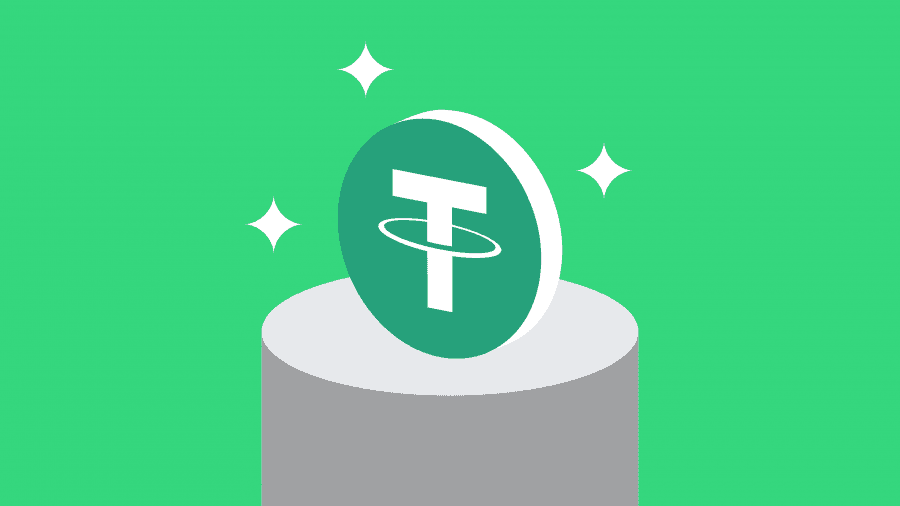Cryptocurrency transactions are digitally signed using cryptography, then confirmed by the network. Then transactions are added to the blockchain through consensus mechanisms like Proof of Work (PoW) and Proof and Stake (PoS).

These consensus mechanisms are designed so that no one person or entity ‘owns’ the blockchain. In addition, PoW and PoS have penalties to ensure that malicious actors do not take advantage of the system and add false or spam transactions.
How do cryptocurrency transactions work?
Cryptocurrency transactions work by leveraging the blockchain — which essentially acts as a public spreadsheet that records every transaction.
Each cryptocurrency transaction is broadcasted to the entire network — including details like the sender’s and recipient’s wallet addresses, the amount of cryptocurrency being exchanged, and a timestamp of the transaction.
These transactions are then grouped together and recorded as a ‘block’ on the blockchain. Once a block is added and confirmed to the chain, it is publicly visible and permanent.
New blocks containing new transactions are continuously generated. Each block is linked to the previous one, forming a continuous “chain” of blocks.
What is a blockchain confirmation?
A ‘confirmation’ occurs each time a new block has been added to the blockchain. For example, if a transaction is part of one block added to the blockchain, and five new blocks are added afterwards, six confirmations have occurred.
Confirmations are necessary to ensure the security of the blockchain. Each confirmation helps to ensure that an attacker cannot compromise the system and ‘double-spend’ the same cryptocurrency.
How long it takes for a transaction to be considered ‘secure’ can vary based on multiple factors — such as network congestion, mining difficulty, and the blockchain that you’re using. While Bitcoin transactions are considered secure after 6 confirmations, Ethereum transactions are considered secure after 30 confirmations.
Who confirms cryptocurrency transactions?
As stated earlier, most blockchains run on one of two consensus mechanisms: Proof of Work and Proof of Stake.
Let’s walk through how both of these consensus mechanisms work.
Proof of Work: In a Proof of Work system, miners solve complex mathematical problems to verify transactions. Blockchains like Bitcoin operate on Proof of Work.
Proof of Stake: Stakers verify transactions based on the number of coins they hold and are willing to “stake” as collateral. Blockchains like Ethereum, Solana, and Cardano operate on Proof of Stake.
How does Proof of Work work?
Proof of Work (PoW) is a consensus mechanism that relies on cryptographic verification through complex mathematical puzzles. Miners compete to solve these puzzles, and the first to solve one gets to add a new block of transactions to the blockchain.
If other miners agree that the new block is valid, it is confirmed by the network, and the miner who solved the puzzle earns cryptocurrency rewards.
Crypto mining requires significant computational power. To get started, you’ll need a hardware mining and software set-up — alongside cheap electricity.
In recent years, Proof of Work has been criticized because of how much energy it requires. However, PoW is highly secure and has helped make Bitcoin the most valuable cryptocurrency in the world.
How does Proof of Stake work?
Proof of Stake (PoS) offers an energy-efficient alternative to PoW. PoS selects validators based on the number of coins they hold and are willing to “stake” as collateral. Validators are chosen to create new blocks and confirm transactions based on the amount they stake.
This mechanism reduces the need for computational power. In the case that a validator acts maliciously, their stake is slashed — ensuring that the blockchain remains secure.
Proof of Stake has been criticized because it allows the network’s biggest holders to accumulate more cryptocurrency — potentially leading to increased centralization.
Why is the verification process for cryptocurrencies important?
The reason why cryptocurrencies are trusted by millions of investors around the world is because of their secure and decentralized verification process.
For years, it was difficult to create a digital currency for two reasons: the double-spend problem and the centralized entity problem. The blockchain verification process helps to solve both of these problems.
Double-spend problem: Digital files can be copied an infinite amount of time and shared with an infinite amount of people. This means that in theory, the same digital currency could be spent multiple times by the same person. The blockchain’s public accounting system is built to solve this problem. Because all transactions are public, it’s impossible for users to cheat the system.
Centralized entity problem: There’s a reason why centralized companies weren’t able to create their own digital currencies before the advent of the blockchain — a lack of trust. Many customers are cautious of storing their savings with a private corporation that could potentially censor transactions. Part of the reason why cryptocurrencies became popular is that they don’t require investors to trust a centralized entity — instead, investors simply need to trust the blockchain’s verification process.
Conclusion
The blockchain verification process relies on consensus mechanisms like Proof of Work and Proof of Stake. While it might be difficult to understand the ins and outs of how these mechanisms work, they’re part of the reason why cryptocurrency transactions are secure and trusted by millions of people and institutions around the world!





 Bitcoin
Bitcoin  Ethereum
Ethereum  XRP
XRP  Tether
Tether  Solana
Solana  USDC
USDC  Dogecoin
Dogecoin  TRON
TRON  Lido Staked Ether
Lido Staked Ether